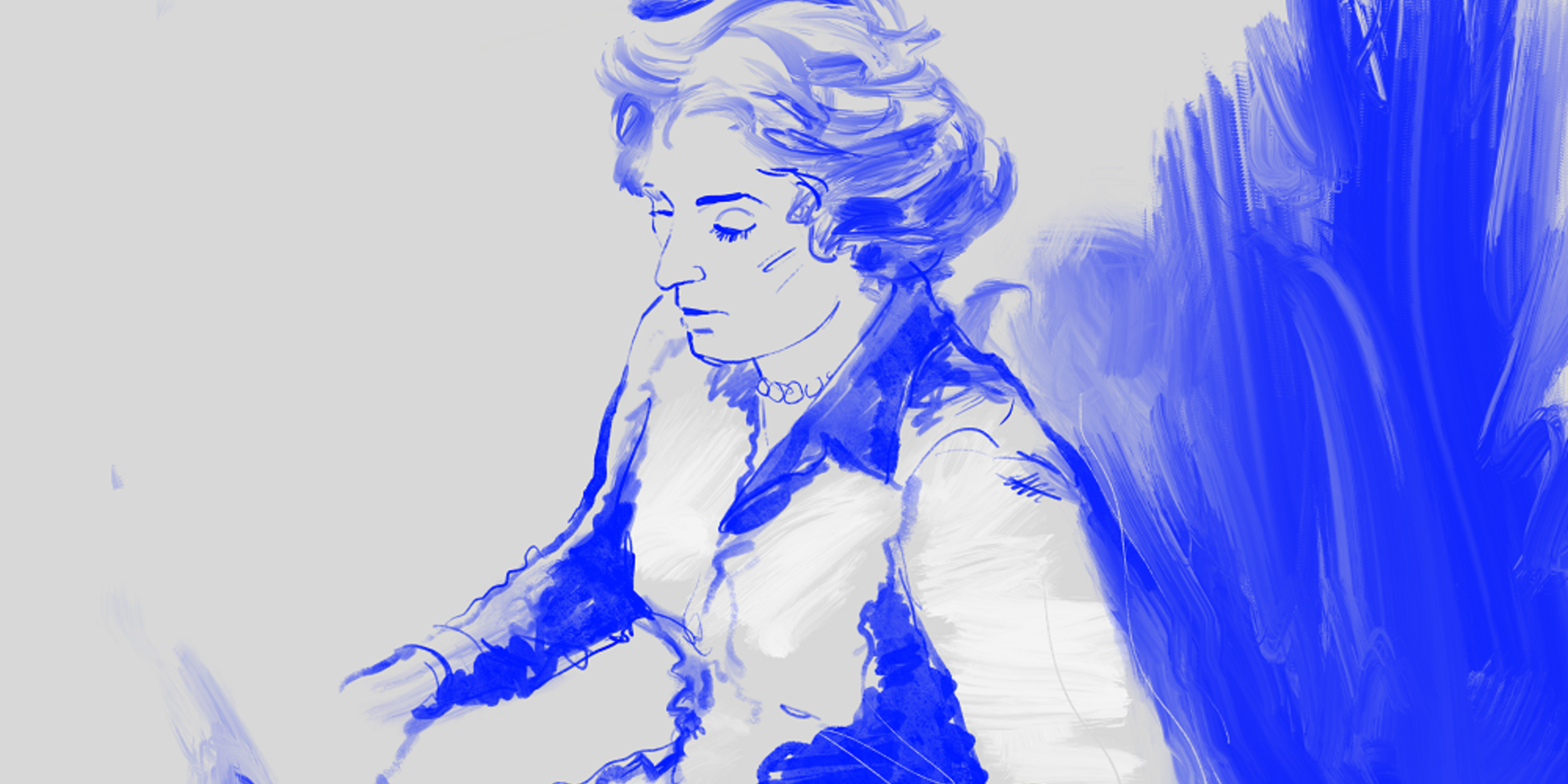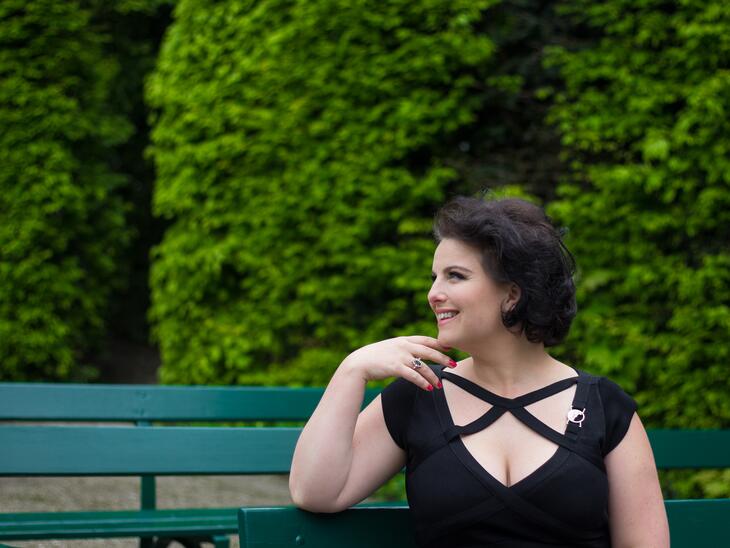The posthumous lack of reception is a sad fate that this French composer, who was celebrated in many places during her lifetime as a "hit composer" by her own fan clubs, shared with many of her creatively active female colleagues, as well as a time-lived arranging and fighting against gender stereotypes and role expectations. While a basic musical education for higher-ranking daughters increased their chances on the marriage market, public musical professionalization, especially for married women, was long ruled out.
Moreover, poets and thinkers of the 19th and early 20th centuries in particular never tired of propagating a gender-ideological rhetoric of genius that must be regarded as the intellectual legacy of Jean-Jacques Rousseau: "Women, taken as a whole, do not love a single art, are connoisseurs in none - have no genius at all." (Jean-Jacques Rousseau, Lettre à d'Alembert sur les spectacles , 1758) If women nevertheless dared to ignore this so to speak 'natural order' and compose, they were more or less grudgingly tolerated, but regularly relegated to their places or to clear genre boundaries: As "second-order forces," they were granted songs as well as other small forms and lyrical piano pieces. But for the sonatas, string quartets, orchestral works, or operas with male connotations, they allegedly lacked the necessary "higher spirit" - as can be read in the Neue Berliner Musikzeitung of May 1, 1850, and in numerous other music-critical writings of the time. In contrast, Cécile Chaminade, for example, still gives herself combatively in 1908: "I do not believe that the few women who have achieved great things in art are the exception, but I think that life has been hard for women; [... Woman] has been handicapped, and only a few have managed, by the force of circumstances or by their innate strength, to overcome this handicap.... In art there is no gender. Genius is an independent quality."
From Handicap to Gendergap
Music historiography and traditional music research were nevertheless for a long time purely associated with Western 'high' music culture, which focused on the preoccupation with individual composer geniuses such as Johann Sebastian Bach, Wolfgang Amadeus Mozart, Ludwig v. Beethoven and Richard Wagner - i.e. those great names whose works were able to form a fixed canon of repertoire that continues to dominate the programs of concert and opera organizers right up to music colleges today. Victims of this focus have been not only, but especially, women composers whose creative activity did not fit into the grid of gender polarization, as well as women generally active in music culture whose "activities, experiences, and spaces did not seem worthy of historical interest." (Gisela Bock) The consequences of these historical circumstances were once very aptly described by musicologist Eva Rieger as a "blank spot on the map of music history," which is still effective today, among other things, as a gender gap in the programs and schedules of major European classical music companies. If a brief glance at festival and concert programs of the contemporary music scene in the German-speaking world is enough to determine that women composers have gained an unmistakable presence and prominence in this field, there is still a need to catch up in the much larger field of classical music - especially with regard to the overdue performance and appreciation of the works and circumstances of "forgotten" women composers (and, of course, composers) of previous centuries.
making the "forgotten" audible and visible
Today it would be relatively easy to offer a stage to female composers from the past. Since the end of the 1970s and the beginning of the 1980s at the latest, women's studies in musicology have achieved astonishing things and have tracked down countless women composers and in many cases even their works and made them accessible to the public in corresponding publications and editions of sheet music. In Salzburg, the reception of women composers has been a tradition for several years, among other things in the form of the activities of the Maria-Anna-Mozart-Gesellschaft Salzburg or the Verein Orchesterprojekt, with which the Institute for Equality and Gender Studies at the Mozarteum University cooperates gladly and regularly. Then, in May 2021, Biliana Tzinlikova, pianist, lecturer for piano and habilitated lecturer for piano chamber music at the Mozarteum University, set another initiative with the Erika Frieser Chamber Music Days: "I conceived the idea and the programs of the Erika Frieser Chamber Music Days with the main idea of bringing little to completely unknown works by female composers to the sound at our university. Discovering, learning, and presenting all of these chamber music compositions advocates for a more balanced repertoire ratio between works by women composers and composers of each gender, while also fostering curiosity in our students (an immensely important quality!), allowing us to look beyond our own horizons, and opening new horizons. In this way, we can hope that the next generations of musicians will contribute to a renewal of the repertoire canon from their own experience and conviction," Tzinlikova formulates her goals and continues: "In addition, versatility or (more) diversity in the repertoire is a central point when it comes to being able to hold one's own in today's music market - and especially as a concertizing pianist and pedagogue, I attach great importance to ktively promoting such practical approaches to life in the profession. In addition, new, 'forgotten' or not yet even discovered female composers need a lobby of strong, preferably prominent interpreters as leading speakers who can also exert their influence with large, traditional concert institutions." For this reason, renowned teachers and students of the Mozarteum University will again form the excellent interpreters of the Erika Frieser Chamber Music Days this year. Incidentally, this festival is dedicated to its namesake Erika Frieser (1927-2011), a woman who should also not be forgotten as a long-time duo partner of Gerhard Mantel, member of the Beethoven Trio as well as the Vienna Trio, but above all as the first female professor of piano chamber music in the history of the Mozarteum University.
(First published in Uni-Nachrichten / Salzburger Nachrichten on December 3, 2022)




